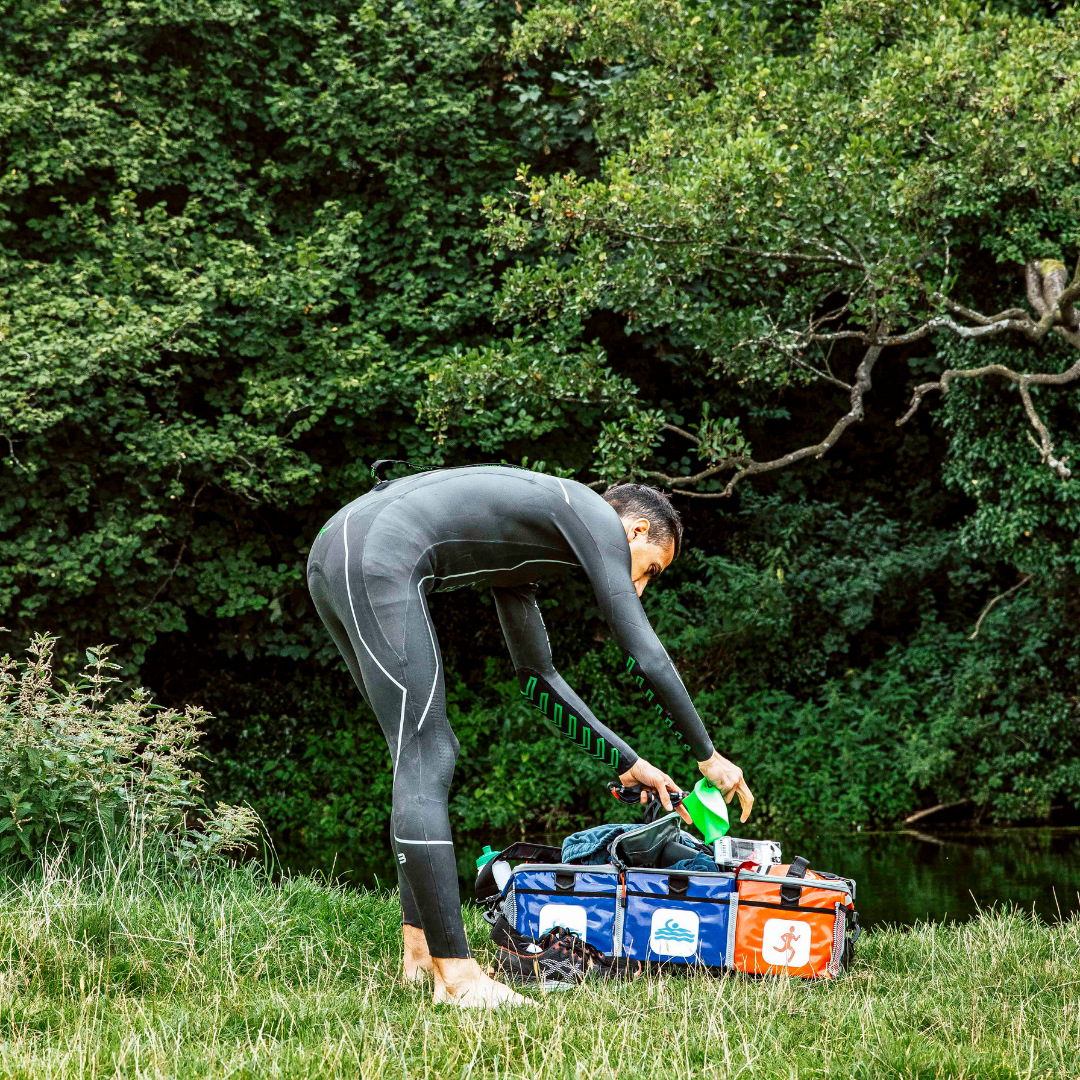
Your Race Was Cancelled? Stay Calm, Stay Positive - tips to keep your training going
March 24, 2020 8 min read
There is something at the moment on the news and around the world that we can’t escape at that of course is the Coronavirus. This virus has caused chaos around the world, with countries struggling to control this and some countries even going into a lock down. Many events so far have been cancelled, clubs postponing training until further notice and so on. It is tough times and a situation none of us expected or has gone through in our lives. So I wrote a blog on how to keep fit, motivated and what you can do if you’re in lock down and can’t leave the house to maintain some sort of fitness. As an athlete and Interim Head Coach of Canterbury Harriers I share your frustration with all your training and plans up in the air, please note that no training is a waste. Being part of clubs has changed my life and helped my health, well being and mentality, I have made lots of friends too, so it will be hard for a lot of us through this difficult time.
Firstly we must listen to the guidelines set by the government so that this can pass quickly. It’s important to stay calm, stay positive and keep moving forward so that we can beat this together. If your struggling for motivation just do something, even if it’s just for 10 minutes. Get out and go for a run for example. If you’re not feeling it after 10 minutes you can go home, but it’s likely you'll get into the swing and stay out much longer. Whatever you do, that’s the first step.
Like many of you my targets, goals and season plans are now all up in the air. Training was going well, getting ready for my first important race in May and then the virus struck. It's okay to feel disappointment about races being cancelled and goals not achieved, but we are all in this together. At the time of writing this I have been fortunate enough to train as normal with no pool or gym closures but I am getting prepared for this. Safety is so important so I will do what I have to do to stay well and safe. So with races being cancelled, park runs cancelled, clubs runs cancelled etc, I therefore had to change my training up. It would be too early to peak for the European Sprint Triathlon Championships in Augusts and I do not even know if that will go ahead. Don’t think your training as gone to waste because your race was cancelled. No training is a waste, firstly by training you’re looking after your mental health, general wellbeing, boosting your immune system and keeping fit. So it’s important to keep training if it’s safe outside alone or indoors.
The pools and leisure centres closed in the UK by the government order on Friday 20th. So how can you maintain your swim fitness? Well the problem is unless you have your own pool, it will be a tough one. This offers the perfect opportunity to work more on another area such as running and cycling and focusing on those disciplines. I started swimming in 2012 and have swam consistently since with only a few weeks off each year at the end of the season. So like many of you, it looks like long periods of not swimming is on the cards. However a large part of swim training can be done in the gym or at home. Swimmers call this land base training. If you already go to the gym you will likely being doing some of these exercises below to make you stronger and keep injuries to a minimum.
So things like Press Ups, Sit Ups, V Sit Ups, Planks, Side Planks, Jumping Lunges, Dead Bug, Tread the Needle, Alkeanas, Glute Bridge and Shoulder Wall Slides will all strengthen your core and improve your swimming. If you have a resistance band you can do Dead Bugs with a band which will help your core and give your arms resistance. You could also add squats. Now don’t overdo it but you can produce a circuit which can include Press Ups, Sit Ups, Squats, Dead Bug and Planks. Do 10 reps of each and then add 3 sets. There is plenty of strength and cardio videos online that will keep you strong and fit. Just make sure when searching the internet you look at the right form and copy it as you don’t want to get injure. So not going to the gym isn’t bad at all, for runners and cyclists you could even add a few more things in like squats, clams and scissors.
Additionally, all of these exercises can be done with or without weights depending on what you have at home. There is a lot you can do without equipment!
What about running? Well this very much depends on whether you are allowed out of your home. The UK government has currently put restrictions on exercising outside of your own house and garden to only once per day. This can be a run alone or with one other family member. If you have a treadmill then you can pretty much do all your runs at home with no problem. If you are allowed out of the house then you can go running and do your own session whilst still maintaining a safe distance from the public. If you only run with your club then you might need some sessions. Good sessions I like are 3 x 1 mile reps with 3 minutes recovery between the reps and a warm up and warm down either side. On the other hand, if you don’t have a treadmill and not allowed out the house either, perhaps you can run up and down your garden? If it’s too small, what about doing drills and working on your running form? Good drills I like are High Knees, A Steps, Heel Flicks and Strides. These will help your form a lot but of course your running fitness won’t be the same.
It’s important your training does not go stale so just because you’re not training with others or racing you can change your training up. If you want to do easy runs, time on feet is a good way to train. You could increase you runs by 6-9 minutes each week for three weeks and then hold for three weeks.For example, if you start from 60 minutes then go 1 hour 6 minutes, 1 hour 12 minutes, 1 hour 18 minutes and hold that 1:18 for two weeks. Then have a recovery week cutting back to 60 min run or less. Easy runs should be easy so don’t worry about pace. The slower the run, the more efficient and faster you will be in the long run. A rough guide on heart rate zones is to reach around 60% of your heart rate max. Any higher and you’re over training into different zones such as the threshold zone. Easy runs in theory should leave you with fresh legs, not sore at all the following day. If you don’t know your heart rate max, zone 2 is the right zone. It might feel slow but your body adapts and pace will come down. My coach Mark Sheperd always stresses the importance of zone 2 training. When you do have a recovery week keep the intensity the same but reps low. For example, if you normally do 6 x 1 k reps then cut that down to 3 to 4 reps. If you want to stay connected with people which is so important you can even have mini competitions with friends via Strava for example. This can help with motivation.
Lastly cycling this can be done easily indoors with your bike/exercise bike. Your bike will need a turbo trainer or rollers. You can pick these up relatively cheap now which will allow you to train just like you would outdoors. There are plenty of programs you can follow and even virtual rides will keep motivation high. Why not hook up with friends and training buddies online for some friendly competition?
So that is how you can still train without a gym. But most crucially, you need to keep motivated! There are a few things you can do... A simple one is to have a break and a recovery week. Use this time to think about what you want to achieve and focus on in the coming months. There is nothing worse than pounding your body all year round and then only resting once you’re broken.
Remember that somebody believes in you. This somebody could be a coach, manager, trainer, fellow athlete or a loved one. They will have the belief in your ability that you currently may not have. There is no harm in asking them for reassurances.
Think in positive ways at all times. Positivity can be developed by assessing each day (training) and competition sessions. Assess your own positivity through forms of achievement through technique, practice and movement. Thinking positively leads to better mind and body balance. Positive thinking enables the neural pathways within the mind to operate with clarity and purpose.
Understand that it can be done. Embark on each task as a champion by having a clear and defined plan. Achieve your task step by step. Do not take on a big task and expect to complete it quickly. Have patience and believe in yourself.
Stay in control of the controllable. Maintaining the controllable builds self-confidence because it provides you with a sense of focus and directive. Remember that you can never control what others are thinking and doing, but you can control what you are achieving. There are a range of variables within running that can lead to performers losing sight of the controllable. External factors/influences will only hinder performance and must be beaten.
Recall previous success. A mantra that I use is related to distance travelled. Think about previous successes that you have had. What did that feel like? How were your emotions during this time? Further, how confident did that make you feel? Recall is a positive mechanism to enable one to re-build confidence as it associates with belief.
Set short-term goals. Most athletes suffer from low self-confidence because they allow the issue(s) to prolong and as a consequence fail to deal with problems head on. To overcome these issues, set short-term goals that will enable the flow of confidence (no matter how small) to start. Through constantly achieving your short-term goals you will build your levels of self-confidence like a snowball growing bigger. Short-term goals should be related to processes that can be achieved.
The current world situation is bad, however exercise wise it’s not all bad, you have lots of options with what you can do if facilities shut or if you go in to lock down. I believe it’s important to keep smiling, keep positive in order to move forward as we can beat this but most importantly, stay safe. Motivation might be tough but I hope these tips help. Setting small goals each week and taking each day as it comes in this climate is a good way to go. I will be posting videos to help with training on my YouTube Channel link HERE, check it out and subscribe.
Your race was cancelled? Stay Calm, Stay Positive - tips to keep your training going. | Written by Yiannis Christodoulou, KitBrix Ambassador
Leave a comment
Comments will be approved before showing up.

